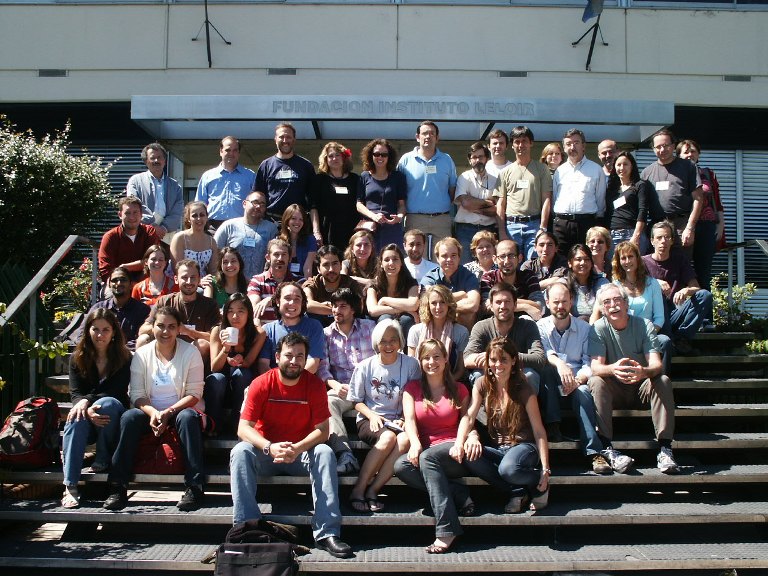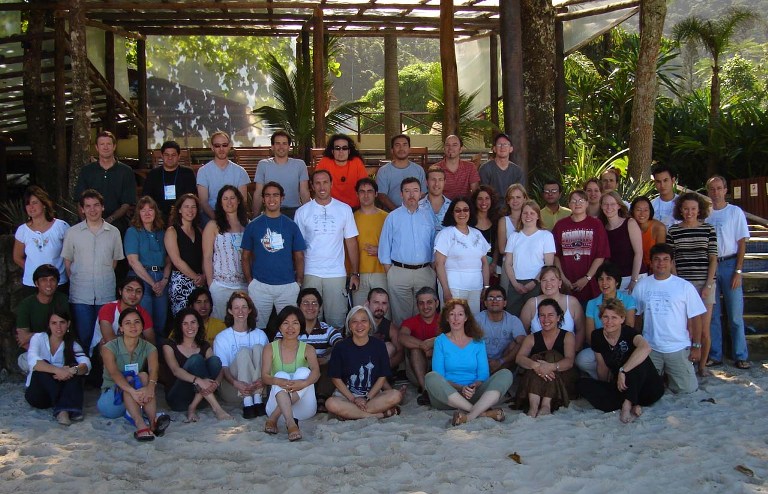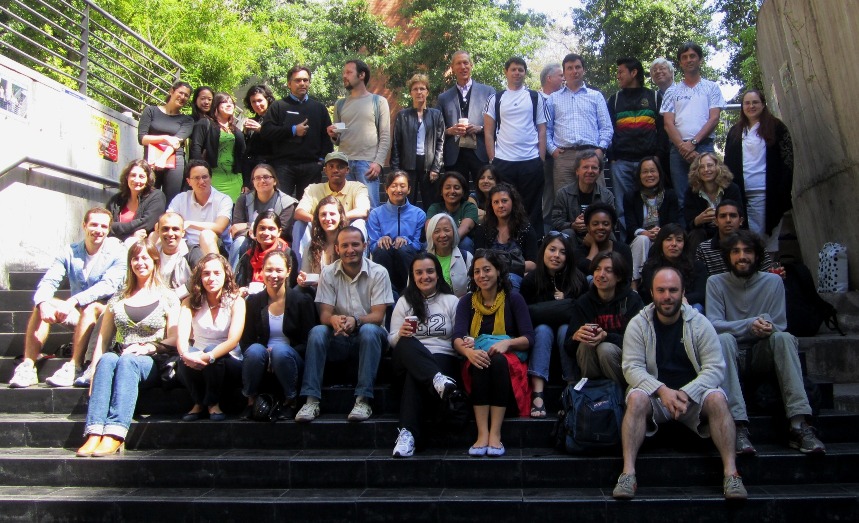|
History
In 2003, the Latin American Society of Developmental Biology (LASDB), led by Roberto Mayor, then at the University of Chile, organized its First International Meeting in Valle Nevado, Chile. Just before the meeting, the LASDB offered a short laboratory course to a number of student participants from Latin American institutions and it was taught by some of the invited speakers. Both meeting and practical course were remarkably successful and provided additional opportunity for the students to learn new lab protocols and to interact with the speakers.
In 2005, at the
request of local organizer José Xavier Neto the second satellite
short course of
the Second International Meeting of LASDB was organized jointly by the
Society for
Developmental Biology (SDB) and LASDB and held in Juquehy, Brazil.
It was on
Model Organisms and Innovative Approaches in Developmental Biology.
Ruth Lehmann
(NYU School of Medicine, SDB President 2004-2005), José Xavier Neto (University of São Paulo), Ida Chow
(SDB) and Roberto Mayor (LASDB President 2005) were the organizers of this
course which received major funding from the National Science
Foundation’s (NSF
and
US Department of Energy) Pan American Advanced Studies Institutes
(PASI)
program.
Additional support came from the National Institute of Child and Human
Health and Development
(NICHD/NIH, USA), Fundação de Amparo à Pesquisa do Estado
de São Paulo (FAPESP, Brazil),
Conselho Nacional de Pesquisa (CNPq, Brazil),
International Society of Developmental Biologists
(ISDB) and SDB (including
proceedings from Developmental Biology).
Fifteen students from
Latin
American institutions and fifteen US-based students were selected
for this
course.
The final program with links to lectures and protocols is available at:
In 2008, the third course was held at Instituto Leloir in Buenos Aires, Argentina, organized by Eric Wieschaus (Princeton Univ., SDB President 2007-2008), Pablo Wappner (Instituto Leloir) and Ida Chow (SDB). Frontiers in Developmental Biology: Concepts, Techniques and Model Organisms was designated a PASI course as it was primarily supported by this NSF-Dept of Energy (USA) program. It was followed by LASDB’s 4th International Meeting. Additional support was provided by NICHD/NIH (USA), UNO-Biolac and Instituto Leloir. The program, lectures and lab protocols are found on the short course website: http://www.sdbonline.org/2008ShortCourse/course.htm
In 2010, SDB and
LASDB jointly organized the fourth short course, which took place just before
the 5th
International Meeting of LASDB and it was on Concepts and Model Organisms in
Regenerative Biology. The organizers of the short course were:
Richard Harland (UC Berkeley, SDB President 2009-2010), Juan Larrain (PUC), Ida Chow
(SDB) and Miguel Allende (UChile). It was held at Pontificia
Universidad Católica
de Chile, with zebrafish and fly lab sessions held at Universidad de
Chile, Santiago, Chile. Major
funding was provided by a PASI grant from NSF-DOE.
Additional support was from: CARE (Center for Aging and
Regeneration-Chile), CGC(Center for Genomics of the Cell-Univ
de Chile) and ICM (Iniciativa Cientifica Milenio).
The program, lectures and lab
protocols are found on the short course website:
Aims of the 2012 Short Course
This course will provide a hands-on experience to the students from the Western Hemisphere to integrate genomics, system biology and gene regulatory networks with standard experimental approaches to explore basic mechanisms in evolutionary biology and to embolden them to take on the future challenges of experimental biology.
The goals of the course are to: · Train young investigators in the Americas eager to use innovative approaches and a variety of model organisms to expand their knowledge base of evolutionary processes. · Foster a culture of borderless collaboration among senior and junior investigators in mutually supportive alliances that will promote advances in our understanding of evolutionary mechanisms. · Provide an open forum for discussion of evolutionary biology issues topical to health, science policy and education in the participating countries and the Western Hemisphere.
For additional information please contact Ida Chow at [email protected] For subject title use "2012 short course"
Home | General Information | Aims/History | Application | Program | Faculty | Instruction Materials |


